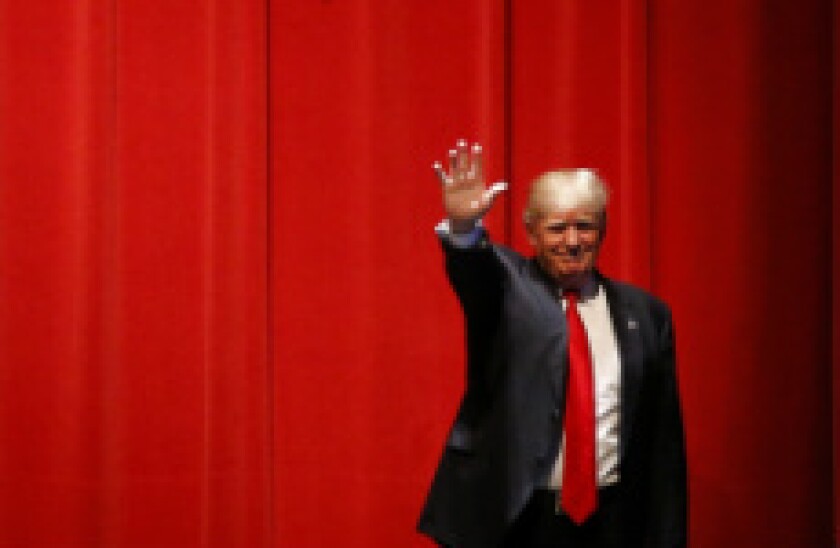The trade war between China and the United States deepened this week, as the US government continued to shift its focus from tariffs to sanctions against individual companies.
Huawei, the Chinese telecommunications company, had already been targeted, when it was adding to an ‘entity list’ that effectively cuts it off from US suppliers. But this week it was reported that the US government was considering blacklisting five other Chinese companies.
Surveillance camera makers Hangzhou Hikvision Digital Technology and Zhejiang Dahua Technology are among those that could face sanctions, according to reports from The New York Times and Bloomberg. The White House has so far made no official comment on these reports.
The US Department of Commerce said this week that Huawei was being given a 90-day reprieve before being blacklisted, making it a potential bargaining chip in trade war negotiations.
US president Donald Trump said on May 23 that he could see Huawei being included in a future trade deal with China, although he repeated the line that there were security concerns regarding the company.
*
Ren Zhengfei, Huawei’s founder, said this week that the company has contingency plans that could cover the loss of US supply contracts.
“The US has underestimated us,” Huawei’s Ren said in an interview with the Chinese media on Tuesday. “Huawei’s 5G will absolutely not be affected. In terms of 5G technology, our competitors are more than two or three years away from catching up with us.”
He added that the “90-day license does not mean much”.
“We are prepared well [for being banned from the US] but we are very grateful for US businesses. They have contributed a lot to us. Many of our consultants are from IBM and other US enterprises.”
*
The onshore renminbi (CNY) has been a major victim of the trade war.
Since the beginning of May, the currency has dropped from 6.73 against US dollar to 6.91 on Friday. Traders speculated whether the PBoC will allow the currency to break the “magical seven”.
On Sunday evening, Pan Gongsheng, deputy governor of PBoC, told reporters that the central bank has enough policy tools to stablise the yuan. On Wednesday evening, Liu Guoqiang, another deputy governor of PBoC, told reporters again that the central bank has sufficient experience in dealing with FX rate volatility.
“There has been sporadic volatility [with the currency] but the market is stable,” he said. “There is no ‘accident’ and [we] will not allow an ‘accident’ to happen.”
On Thursday, however, the onshore renminbi dropped to 6.92 against the US dollar, the lowest point in almost six months.
Apart from verbal intervention, the PBoC also flirted with the idea of issuing more renminbi bills in Hong Kong “soon”, state-owned news agency Xinhua reported on Tuesday. The report was subsequently republished on the government’s official website. The central bank issued Rmb20bn of renminbi bills in Hong Kong on May 15.
The size and exact timing of the upcoming bills issuance is not known. Last time around, the act was widely interpreted by onshore bankers as a way to drain offshore renminbi (CNH) liquidty to prevent traders from shorting the currency.
*
One potential impact of the trade war is on US inflation. Rising tariffs, by leading to more general rise in prices, could encourage the Federal Reserve to resume its interest rate hikes sooner than it otherwise would. But analysts think there is little reason for alarm.
“Inflation could pick up slightly in the next 12 months, but then we believe the Fed will recognise this as a one-off event and focus will still be on growth,” said Ian Hui, global market strategist at JP Morgan Asset Management. “Tolerance for higher levels of inflation is likely to win over restarting the rate hiking cycle and potentially dragging down the US economy.”
*
Nomura economists said on Wednesday that they have a new baseline assumption: that the roughly $300bn of Chinese imports to the US not currently covered by tariffs will be hit with a 25% tariff by the end of the year.
The US government has so far imposed 25% tariffs on the remaining $250bn of Chinese imports, around 46% of the total in 2018, according to data from the US Census Bureau.
Nomura said the next round of tariff increases is likely to come in the third quarter, after a meeting between US president Trump and Chinese leader Xi Jinping.
*
The Industrial and Commercial Bank of China and China Construction Bank both received green light to set up their own wealth mangement subsidiaries on Wednesday, according a statement by the China Banking and Insurance Regulatory Commission.
In the same statement, the regulator said that there have been other comercial banks who have applied and been approved to do the same.
*
Bank of China published its monthly Credits Investment and Financing Environment Difference Index (Cifed) on Tuesday.
For the first time this year, the index returned to the positive range, indicating that offshore renminbi bond yields are lower than onshore ones.
The general Cifed index stood at 7.1 by April, a 30.6 increase from March.
In terms of individual sectors, the commercial bank sub-index was the highest, reaching 48 after a 20.7 point increase from the previous month. The sub-index for privately owned companies stood at -60.2, indicating that it is still cheaper for private enterprises to raise money offshore than onshore.
*
In April, sales of passenger cars reached 1.47 million, a 22% decrease year-on-year, according to data by the China Passenger Car Association on Monday.

